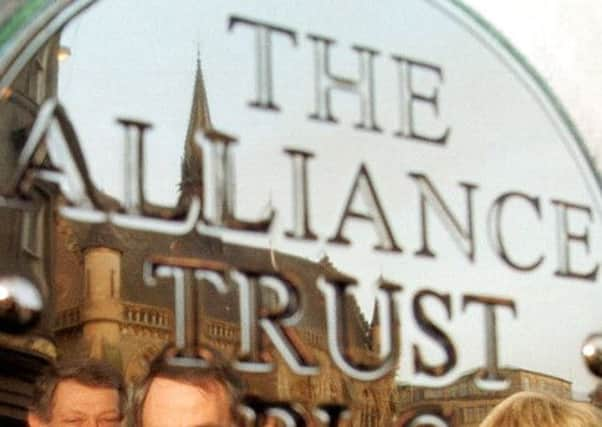Bill Jamieson: Alliance | Pre–election worries


Dundee-based Alliance is an icon of the Scottish financial sector. It is one of the oldest and largest investment trusts in the world and has a following of more than 50,000 small investors. Now, for the third time in recent years, it is under siege.
Last week saw a further fusillade of exchanges between the £3.6 billion trust, headed by the beatific Katherine Garrett-Cox, and US hedge fund Elliott. It wants to put three of its nominees on the Alliance board. And it has brought more firepower to bear by raising its voting stake in the 127-year-old trust from 5 to 10 per cent. Through contracts for difference, it holds a further 2.3 per cent.
Advertisement
Hide AdAdvertisement
Hide AdThe row is over performance, management costs and governance. Even Alliance’s house broker, JP Morgan Cazenove, admitted last week the trust’s critics had landed “a few heavy blows”. Elliott has said charges are too high, that Garrett-Cox and chairwoman Karin Forseke are paid too much, and the trust is a serial underperformer.
Elliot has said that in five of the last six calendar years (since Garrett-Cox’s appointment), Alliance’s net asset value total return has fallen below the sector average and that, cumulatively, the shortfall is 7.7 per cent, or 1.3 per cent per annum. The equities portfolio has produced a total return of 35.8 per cent over 2011-14, versus the MSCI World’s 41.5 per cent, a shortfall of 5.7 per cent.
In its defence, Alliance said that since the changes to the investment management team at the end of September, it has delivered strong performance that ranks it 9th out of the 35 trusts in the Morningstar Global sector investment trust index on a net asset value total return basis.
Shareholders will have a chance to vote at the Alliance annual meeting in Dundee on 29 April. Assuming that this is more than a quick opportunistic hit to narrow the discount and sell out, then the future governance and independence of Alliance is very much at issue.
Quite what the three Elliott Amigos – Anthony Brooke (ex-Warburg), Peter Chambers (ex-Legal & General Investment Management) and Rory Macnamara (ex-Morgan Grenfell) – plan to do once on the board is still not clear, but Elliott insists they are independent. A statement from them would be of help to shareholders.
In my view a key issue at stake is the Alliance dividend policy. The dividend yield of 1.4 per cent badly lags that of the FTSE All Share – currently 3.3 per cent: not good enough.
Equally, shareholders surely deserve to hear what the existing Alliance non-executives – John Hylands, Alastair Kerr, Susan Noble and Gregor Stewart – have to say, as their role is to provide a performance and governance watch on behalf of investors. Remaining silent when the trust faces a direct challenge to its modus operandi is surely not an option.
This is, as an astute note from JP Morgan Cazenove observes, a referendum on where the company goes from here. And my sense is that, rather like the independence referendum, a vote for “status quo” will not resolve the issue. Elliott may be the loser, but Alliance will not be the victor.
Advertisement
Hide AdAdvertisement
Hide AdToo many searching questions have been raised, and over a lengthy period of time, for any return to status quo ante. Investors will press for a demonstrable improvement in performance and the prospect of credible profits on trading subsidiaries for confidence in the board to be sustained. On that perspective, the future direction and stewardship of Alliance remains wide open.
Pre–election worries
A flow of “good news” has so far insulated markets from the implications of a gridlocked parliament. but asset manager BlackRock is none too sanguine. It compares the prospect of a Labour government dependent on SNP support to Spain “if the central government were dependent on Basque or Catalan separatists… This could turn the UK into a sort of pre-crisis Spain, with mounting piles of regional debt to fund local spending”.
The risk is that the pound could take a hit as we get closer to the election and that the government might slow the pace of cutting the deficit, triggering a sell-off in gilts and a rise in interest rates.
The prospect of a second election around the corner would further deepen apprehension. Expect to see many “voting” to cut their exposure to UK plc and look overseas for returns.
SUBSCRIBE TO THE SCOTSMAN’S BUSINESS BRIEFING
• Get the latest business headlines from a variety of news sources emailed to your inbox each morning
FOLLOW US
SCOTSMAN TABLET AND MOBILE APPS